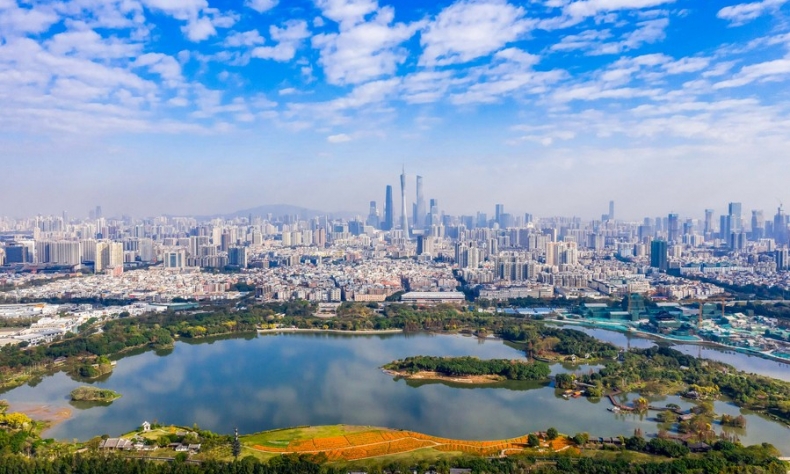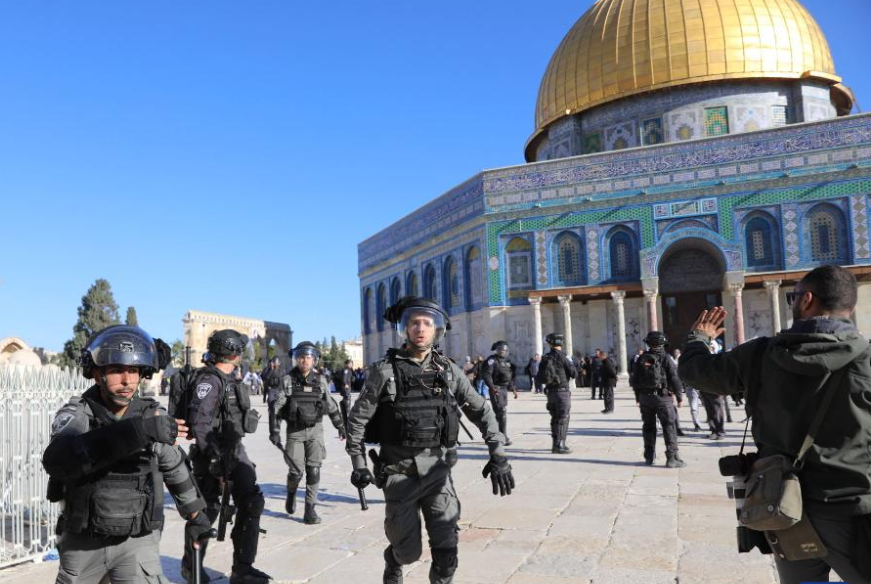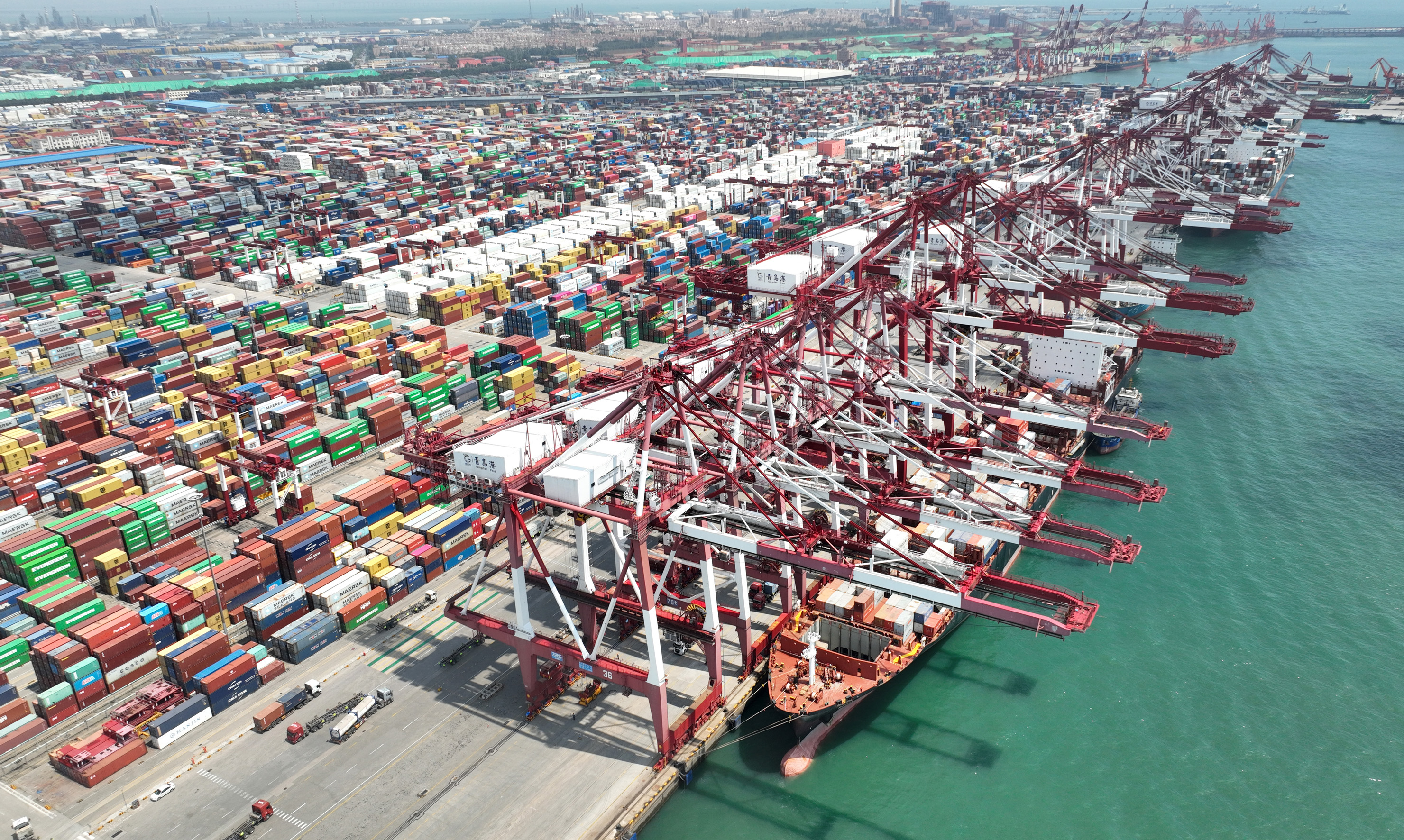Instability Must Be Met with Unity

China will dedicate itself to pursuing human progress and global harmony, devote itself to achieving rejuvenation and lasting greatness for the Chinese nation, and contribute to the cause of the continuation and transformation of the international system.
Following a very challenging 2022, the world may find it difficult to be optimistic about 2023, given the risks to the economy as well as global and regional security. The trends of transformation and turbulence are both evolving continuously, and the tendencies toward unity and division are contending with each other.
A more unstable world
All the knock-on effects of the Russia-Ukraine conflict, the energy crisis and the crisis in the global food supply remain at play as 2023 begins, with a mix of inflation and recession, leaving the world vulnerable to yet more economic trauma.
The growth of the global economy has slowed from 6 percent in 2021 to 3.2 percent in 2022, according to International Monetary Fund (IMF) figures. The IMF has said at least one third of the world will be in recession in 2023. Developing countries might suffer the most because of their accumulated debt and there are fears some will default entirely. Many other countries have taken on high levels of debt that have become more burdensome as global inflation and interest rates rise.
Israeli Prime Minister Benjamin Netanyahu’s new government attracted worldwide attention shortly after it took office on December 29 last year, as Israel’s new far-right National Security Minister Itamar Ben-Gvir visited the Al-Aqsa Mosque compound in Jerusalem in early January, a site known to Jews as the Temple Mount and to Muslims as the Noble Sanctuary. The visit risked inflaming tensions with Palestinians that have already been running high after an upsurge in violence in the occupied West Bank in the past year. It prompted fierce condemnation from the Palestinians, as Palestinian Prime Minister Mohammad Shtayyeh called on Palestinians to “confront the raids into Al-Aqsa Mosque,” accusing Ben-Gvir of staging the visit as part of a bid to turn the shrine “into a Jewish temple.”

The site is historically a flashpoint for Israeli-Palestinian tensions. Hamas, the Palestinian militant group, fought an 11-day war with Israel in 2021 after weeks of escalating clashes at Al-Aqsa. Five years of violence and bloodshed known as the Second Intifada, or Palestinian uprising, erupted after an inflammatory visit to the site in 2000 by Ariel Sharon, then Israeli opposition leader.
The Palestinian-Israeli peace talks have been deadlocked for more than 13 years. The policies of Netanyahu’s new government, the most extremist one in recent memory, are giving rise to serious fears. Those policies might deal a deadly blow to the slimmest hope for peace in Palestine and draw widespread international condemnation.
On January 8, supporters of former Brazilian President Jair Bolsonaro stormed the presidential palace, the Congress and the Supreme Court, smashed windows and used furniture to create barricades against security forces. The attackers were protesting Bolsonaro’s loss of power after being defeated by Luiz Inácio Lula da Silva in the presidential election last October. At a news conference, President Lula described the events in the capital of Brasília as “barbaric” and said “a lack of security” had allowed Bolsonaro’s “fascist” supporters to breach barriers set up by the armed forces. World leaders repudiated the protesters’ acts and expressed their support for the incumbent Brazilian Government.
These are living examples of political unrest and increased violence against the backdrop of worsening economic conditions in the world.
Mounting risks
Many said the Ukraine conflict’s chief lesson has been to expect the unexpected.
Beyond the can-Ukraine-win question, U.S. foreign policy experts assessed the likelihood and impact of 30 potential conflicts that could emerge or escalate in 2023. An acute security crisis in Northeast Asia triggered by the Democratic People’s Republic of Korea’s development and testing of nuclear weapons and long-range ballistic missiles, a military confrontation between Israel and Iran over Iran’s nuclear program and its continued support for militant groups in neighboring countries, and potential interstate warfare and its escalation, all are among the potential threats and tensions looming in 2023.

European insurance company AXA, in collaboration with the Eurasia Group, has produced a report on its assessment of current and emerging threats. The authors of the report surveyed around 4,500 risk experts from 58 countries. They also partnered with the IPSOS market research company to survey nearly 20,000 individuals making up a representative sample from 15 countries. The report ranked the top 10 risks as follows: climate change, geopolitical instability, cybersecurity risks, energy risks, pandemics and infectious diseases, social tensions and movements, natural resources and biodiversity risks, financial stability risks, macroeconomic risks and monetary and fiscal policy risks.
That said, crisis begets change, giving birth to hope. Moving forward to 2023, high hopes are pinned on decision makers, organizations and initiatives to put an end to the rising tone of conflict and the subsequent ramifications. In a world beset by multiple rapidly changing crises, in which policymaking and running institutions are akin to a process of never-ending crisis management, the world needs not only to avert risks but also to identify possibilities for reform and to rally together in solidarity, integrity, fairness and optimism to do larger and common good for humanity.
Constructive role
The year 2023 marks the beginning of the implementation of the guiding principles laid down at the 20th National Congress of the Communist Party of China, which outlined China’s priorities for the next five years and beyond. China will dedicate itself to pursuing human progress and global harmony, devote itself to achieving rejuvenation and lasting greatness for the Chinese nation, and contribute to the cause of the continuation and transformation of the international system.

China will adhere to a Chinese path to modernization to create a new form of human advancement and provide new choices for other developing countries. It will support them in exploring development paths befitting their national conditions and embarking on a fast track toward modernization.
China will stay committed to peaceful development, high-standard opening up and independence, oppose hegemonism and power politics of all forms and manifestations, and pursue mutual respect, trust and benefit with other countries. It will defend the legitimate rights of its people and people of all countries to pursue peace and development, promote trade and investment liberalization and facilitation and the building of an open world economy, and contribute to addressing deficits in development and security.
China will carry out dialogues between civilizations, respect the diversity and equality of civilizations, and advocate exchanges and mutual learning among civilizations. The country will promote the common values of humanity and turn democracy and freedom from political tools manipulated by a few people into values shared by all humankind. It will continue to work for building an open, inclusive, clean and beautiful world that enjoys lasting peace, universal security and common prosperity.
The author is an op-ed contributor to Beijing Review and an expert on international studies.
 Facebook
Facebook
 Twitter
Twitter
 Linkedin
Linkedin
 Google +
Google +










